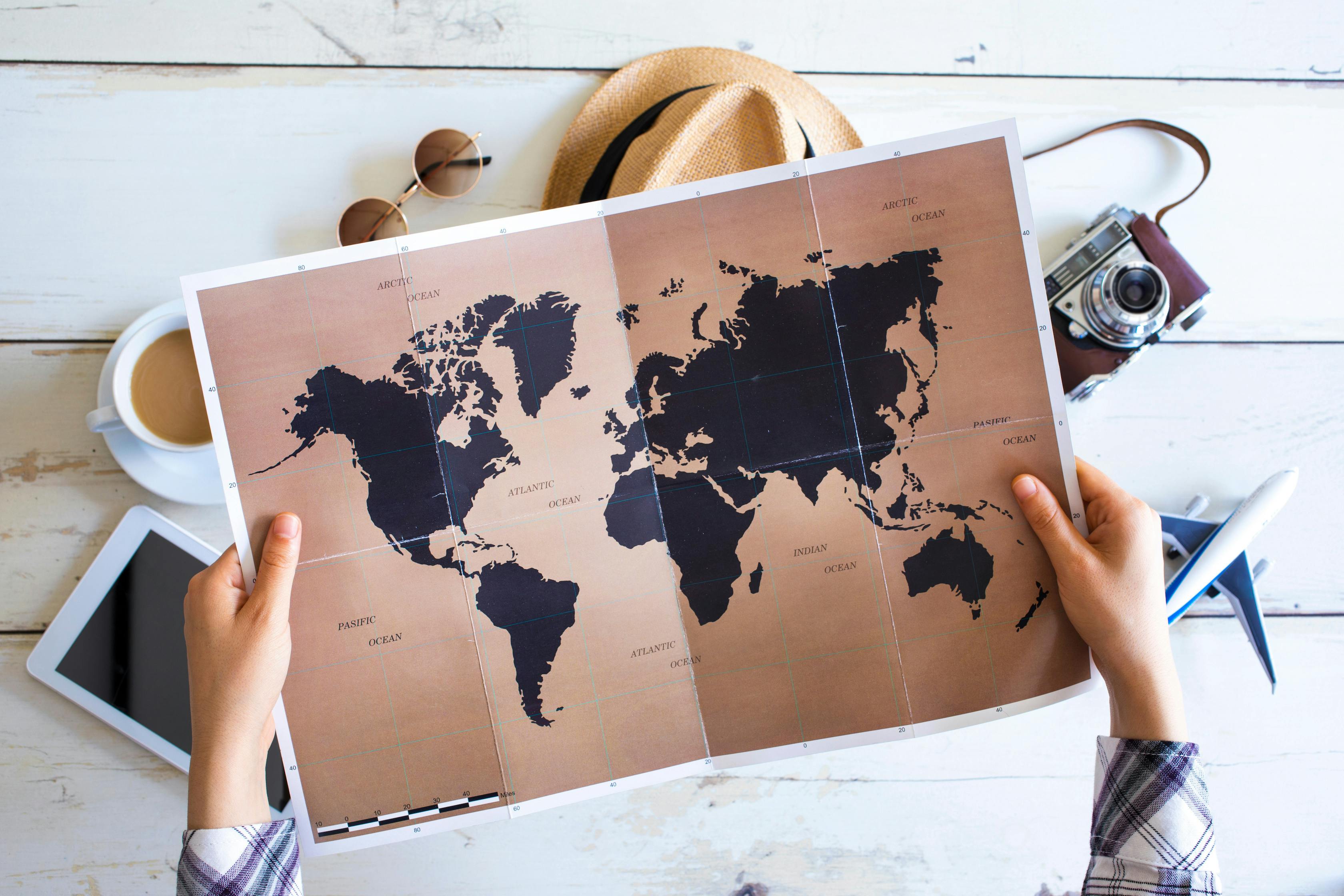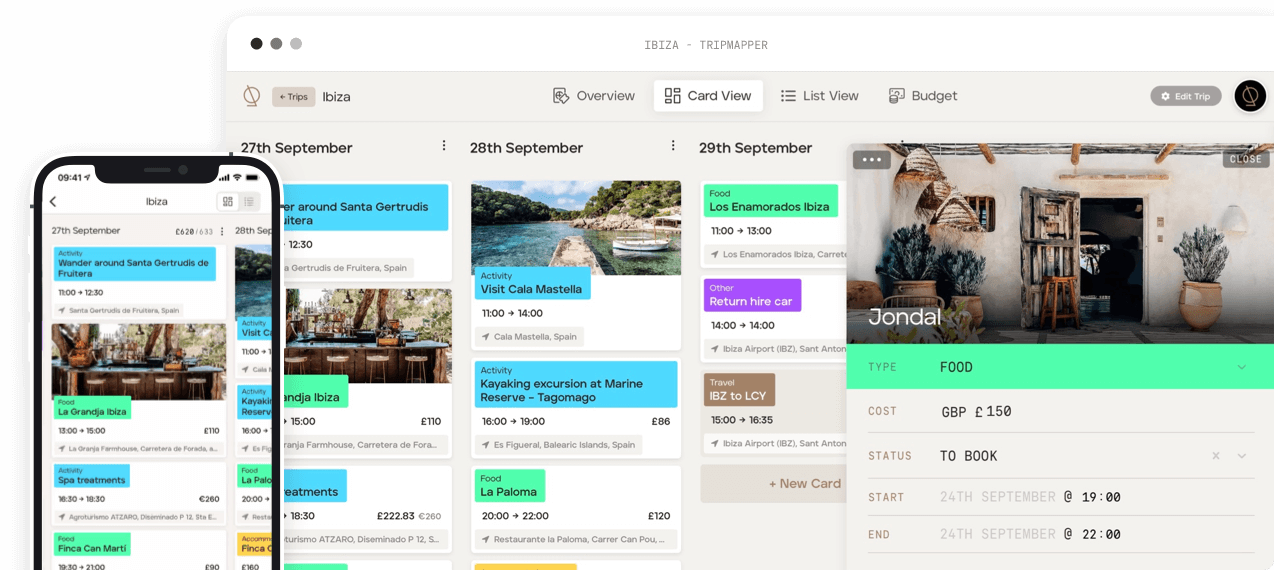As tour operators and travel agents, understanding the traveller purchase journey is essential for enhancing customer satisfaction and driving business growth. Today's travellers are armed with information and have diverse preferences, making it crucial to adapt your strategies to cater to their needs. In this article, we'll explore the traveller purchase journey and provide insights to help you navigate this dynamic landscape.
The inspiration phase
The journey begins with the inspiration phase, where potential travellers seek ideas for their next adventure. They might stumble upon stunning travel photography, read captivating blog posts, or watch travel vlogs. As tour operators and travel agents, you can tap into this phase by maintaining an active online presence through engaging content on social media, a well-designed website, and a travel blog. Highlighting unique destinations and experiences can captivate your audience and spark their interest in exploring new horizons.
The first stage of the traveler's journey is the moment of inspiration, a crucial 33-day period that significantly impacts their decisions, as indicated by survey data. Travel inspiration can arise from various sources, making it essential for destinations and travel providers to stand out and remain top of mind during this phase. According to the survey, conversations with family members serve as the primary source of inspiration for 37% of travelers, motivating them to plan a trip. However, even with external influences, many travelers remain undecided about their destination during this stage. Approximately 59% of respondents did not have a specific place in mind or considered multiple destinations. Interestingly, over 80% of Mexican travelers and 62% of travelers from the U.K. were undecided about their destination, suggesting a high receptivity to destination inspiration. Among the 13% of travelers who contemplated more than one destination, they considered an average of three different places. The indecisiveness surrounding the destination presents valuable opportunities for destinations and travel brands to inspire and influence travelers early in the booking process, especially considering that the entire path to purchase takes more than two months, and nearly three months for international trips.
Social media plays a crucial role in the travel planning process, serving as a source of inspiration and recommendations for travelers. Among the various platforms, Instagram, Facebook, and YouTube emerge as the top three choices used throughout the planning journey. Travellers seek real-life experiences shared by others, along with reviews and feedback on specific hotels, activities, or destinations. Social media provides an ideal platform for the dissemination and consumption of these authentic stories. As they navigate their travel decisions, individuals turn to social media to find destination inspiration, lodging suggestions, travel content, attractive deals, and more. ADD STATS HERE FROM PDF
TIP: When promoting a destination, property, or travel offering, it's essential to combine inspirational social content with discounted rates or promotional deals to make it even more enticing to potential travelers. Additionally, collaborating with influencers to provide promotional links and codes can further enhance the appeal of the package. Leveraging user-generated content in social media campaigns holds immense value, resonating with travellers who seek authentic and reliable information from fellow travellers. By leveraging the power of social media effectively, travel businesses can significantly impact the decision-making process of their target audience.
Research
After being inspired, travellers move into the research and planning phase. During this stage, they gather information about destinations, accommodations, activities, and travel options. As a tour operator or travel agent, your website and marketing materials should offer comprehensive and up-to-date information.
TIP: Ensure your content is SEO optimised, making it easier for potential customers to find your services in search engine results. Implementing chatbots or live chat support on your website can provide personalised assistance to customers during their research, answering specific queries and building a connection that fosters trust in your expertise.
Following the inspiration phase, travelers typically dedicate around 38 days to research and plan their trip. During this phase, they actively explore multiple options, gather information, and gradually narrow down their choices, engaging with even more resources compared to the inspiration phase.
Among the top five resources used for travel research, approximately three-fourths of travelers rely on search engines, meta travel websites, and social media. Destination websites and Online Travel Agencies (OTAs) follow closely in popularity. Additionally, as travelers shop around and compare various options, they also utilize vacation rental, hotel, and transportation websites or apps, such as car rental, rail, and airline services, for their research purposes.
TIP: This speaks to the importance of having a brand presence not just on your owned websites, but across other channels and platforms like OTAs and ensuring your rates and inventory are accurate everywhere to stay top of mind with travelers.
Planning
As the consideration window comes to a close and just before making their bookings, travelers enter the planning phase. During this crucial period, they meticulously map out the details of their trip and carefully assess the final options they had identified during the research phase.
Among the resources utilized by travelers, Online Travel Agencies (OTAs) take the lead as the most popular online resource for travel planning, closely followed by meta travel websites. Additionally, travelers also make use of car, hotel, and rail websites or apps, along with vacation rental websites or apps, and social media platforms. These various online resources play a vital role in helping travelers further narrow down their options and finalize key details, such as the ideal location, pricing, travel dates, and planned activities for their upcoming journey.
Booking and purchase
Once travellers have completed their research, they are ready to make a decision and proceed with booking. At this crucial stage, a seamless booking process is vital to prevent potential customers from abandoning their reservations. Implement an intuitive and user-friendly booking system that simplifies the process. Minimise the number of steps required, and provide multiple secure payment options to cater to various preferences.
Additionally, offering exclusive promotions or limited-time discounts during this stage can provide the nudge needed for travellers to finalise their booking.
In the most recent trip, a significant portion of travelers (51%) chose to book through an Online Travel Agency (OTA), with Japan leading the trend at 69%. Meanwhile, 37% of travelers made their bookings directly on an airline website or app, and 23% opted for a hotel website or app. It's worth noting that some travelers booked various trip elements through multiple travel websites, underscoring the importance of establishing a brand presence beyond owned channels. A substantial majority of travelers (78%) had prior experience with the website they ultimately booked on, highlighting the significance of familiarity in their booking decision. Similarly, for those who booked through an OTA, more than three-quarters (76%) had previous experience with an OTA for their travel arrangements.
Among travelers who booked multiple components for their trip, 43% started by booking their flight first, a figure that reached 55% in Australia and 53% in Mexico. Conversely, 27% chose to book their accommodation first. For Japanese travelers with multiple trip elements, 52% preferred to book their hotel first.
Pre-trip engagement
Congratulations, your customers have booked their trip! However, your engagement with them should not end there. Provide pre-trip support and resources to ensure their peace of mind. Send out pre-travel reminders, packing lists, and useful tips to help them prepare for their upcoming adventure.
Personalised communication, such as a welcome email or call, can also go a long way in building a strong rapport with your customers and demonstrating that you care about their travel experiences.
The Travel Experience
The travel experience itself is a make-or-break moment for customers. Strive to deliver what you promised and exceed expectations whenever possible. Partner with reputable service providers and local guides to ensure that travellers have a seamless and memorable journey.
Encourage customers to share their experiences on social media or provide feedback through reviews and surveys. Positive reviews can bolster your credibility and attract more potential customers in the future.
Post-travel follow-up
As the travellers return from their trip, continue engaging with them through post-travel follow-ups. Express your gratitude for their business and ask for their feedback on the experience. This not only shows that you value their opinions but also helps you identify areas for improvement.
Consider offering loyalty programs or referral incentives to encourage repeat business and attract new customers through word-of-mouth recommendations.
Turning insights into action
Influence travelers with inspiration and information
Travel inspiration can strike from various sources, such as social media posts, conversations with family, or captivating online promotions. However, the journey of influencing traveler decisions doesn't end with this initial spark of inspiration. To have a lasting impact, it's essential to present compelling and informative content across advertising, social media platforms, and other channels throughout the traveler's path to purchase. By showcasing aspirational and engaging content, you can maintain a strong influence on travelers, guiding them towards choosing your offerings for their ultimate travel experience.
Incorporate deals and incentives
Half of all travelers prioritize obtaining the best price when determining where to shop and book their trip. When devising your advertising and marketing strategy, it's crucial to highlight promotional discounts or enticing offers while also emphasizing the distinctiveness of your location and the exciting activities available to attract and appeal to travelers. By combining attractive discounts with captivating content, you can effectively capture the attention of potential customers and encourage them to choose your services for a memorable travel experience.
In today's competitive travel industry, understanding the traveller purchase journey is vital for tour operators and travel agents to thrive. By strategically aligning your marketing efforts and services with each stage of the journey, you can provide exceptional customer experiences, foster loyalty, and ultimately grow your business.
Keep in mind that every traveller is unique, so a personalised approach and attentive customer service are key differentiators. Embrace the ever-evolving landscape of travel trends, technology, and customer preferences to remain relevant and successful in this exciting industry.
The Path To Purchase- Uncovering how travelers plan and book online (Expedia group) published July 2023
This consumer survey was conducted by Luth Research between March 24-April 19, 2023, among 5,713 participants 18 years and older in seven markets: Australia, Canada, France, Japan, Mexico, and the U.K. and U.S. who booked online travel within the last six months.
The behavioral digital study used Luth Research’s ZQ Intelligence passive metering technology and its database of digital behaviors to analyze the travel path to purchase for 70,000+ participants 18 years and older in seven markets: Australia, Canada, France, Japan,
Mexico, and the U.K. and U.S. The digital data panel spanned 12 months and evaluated traveler behavior and influences in the 45 days leading up to booking a trip, looking across desktop and mobile devices, with limited mobile app visibility. Online visits to relevant travel sites within the past 12 months were identified, and the digital data from 45 days prior tobooking was extracted and analyzed.

